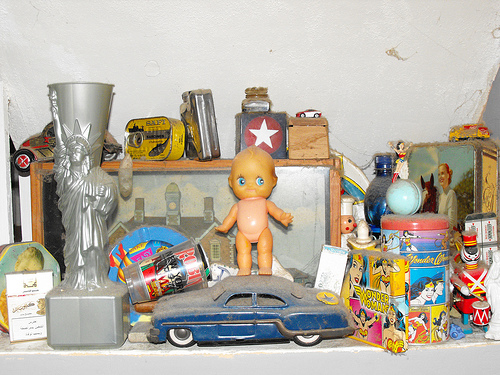
I spent Friday cleaning out my desk and leaving instructions for my successors.
Having worked as a field surveyor for eight years I had never spent so much of my workday in the office. On a normal day we prepare our field work in the office for the first hour, then head off to a job site. Surveyors are dirt-and-sky people, and tend to get stircrazy if it takes them too long to get out of the office in the morning. They’re allergic to cubicles and photocopiers, and will start to suffocate if they don’t get fresh air. On the rare occasions I’d be in the office in the afternoon, aside from that slow suffocation, it felt unnatural and slightly inappropriate, something like when your friend leaves you alone in his house for twenty minutes while he whips out to the store.
On this final Friday those feelings never arrived, even though I was in the office all the way to 4:30 pm. It felt like I could have been anywhere and it wouldn’t have mattered, like it probably feels in the first few hours after you successfully fake your death.
That feeling, I guess, was the sensation of being released from authority, a weight that had been resting on my mind for long enough for me to forget that it was possible to remove it. For the first time in a long time I didn’t have to answer to anyone. I knew my company-issue Blackberry wasn’t going to ring, I knew nobody was going to ask anything of me. It was like walking up to a glass barrier that had always been there and realizing it was only air.
The rest of the day was full of similarly weird sensations. When I parked my car outside my building, I mentally prepared myself to perform the getting-home ritual I’ve done hundreds of times: heave my laptop bag out of the backseat, collect my equipment from the trunk and farmer’s walk to the door, pin my GPS case against the wall while I fish out my keys, then open two stubborn glass doors, careful not to bang the case against the panes, then unlock my suite and shoulder the door closed before setting everything down in the permanent temporary pile of equipment beside the door.
I had all but done the whole thing in my mind when I realized I no longer have a GPS or a gigantic laptop, and I could just get out of the car and go into the building like a normal person. When I got inside I reached to my side for my Blackberry, to check email one last time (a ritual that sometimes prevented unwelcome surprises in the morning) and found that there was nothing there. Read More









 I'm David, and Raptitude is a blog about getting better at being human -- things we can do to improve our lives today.
I'm David, and Raptitude is a blog about getting better at being human -- things we can do to improve our lives today.
It all pretty the opposite if you're not in the US :) Since 2022 I've changed 3 countries and I'm planning to emigrate to the fourth one. I've had so much novelty and so many things to adapt to. However, time had never run so fast for me as in 2022...